
Theology
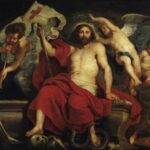
A Short Summary of the Plan of God in Christ
When communicating with those who are unfamiliar with the scriptural support for the true victorious gospel, it can be beneficial to have a starting point from which to branch out as appropriate ...

“Straight away He put away death” – Athanasius, On the Incarnation §9
To this end He takes to Himself a body capable of death, that it, by partaking of the Word Who is above all, might be worthy to die in the stead of all, and might, because of the Word which had come to dwell in it, remain incorruptible, and that thenceforth corruption might be stayed from all by the Grace of the Resurrection. Whence, by offering unto death the body ...
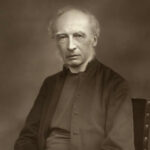
“If One died for all, then all died”. 2 Cor. 5:14 according to Charles Ellicott
The race, in its collective unity, died, as He died, to sin, and should live, as He lives, to God. Each member of the race is then only in a true and normal state when he ceases to live for himself and actually lives for Christ. That is the mystic ideal which St. Paul placed before himself and others, and every advance in holiness is, in its measure, an approximation ...
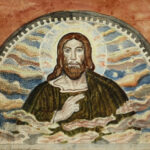
Christoph Blumhardt: He is Lord and Savior Over All
If I should have to give up hope for any person, any country, any world, or any situation, then Jesus would not be the one who holds the universe together. There would still remain the burden of death, of travail, a load of night and darkness. Then Jesus would not be the light of the world, and his would not be a cosmic cross that brings everything back together. He ...
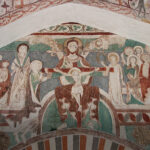
“We glory in tribulations!” Karl Barth on Rom. 5:3
Thus our tribulation, without ceasing to be tribulation or to be felt to be tribulation, is transformed. We must suffer, as we suffered before. But our suffering is no longer a passive, dangerous, poisonous, destructive tribulation and perplexity, such as invade the souls of those who hate the Judge (ii. 9), but is transformed into a tribulation and perplexity which are creative, fruitful, powerful, promising, by which men are dissolved, ...

Samuel Richardson: “It cannot be that cruelty dwells in God, who is love”
It cannot be that cruelty dwells in God, who is love, and whose goodness is unsearchable, past finding out, far above all we can ask or think. There is such a confused noise among men, of the grace and love of God, so many voices that we are in confusion, and know not what to make of it. Look above, and hearken to the sweet voice in the region of ...

Samuel Cox: The Larger Hope
Let the Cross of Christ be the banner under which we fight. Let us maintain that the Atonement made by Him, as it was intended for all, so also must it extend to all, since even the sin of man cannot render the purpose of God of none effect ...

James Relly: The Great Salvation Contemplated, epistle V
If Jesus gave himself a ransom for all, then are all ransomed: the prey is taken from the mighty, and the lawful captives are delivered – they are ransomed from the dominion of sin, from the curse of the law, and from everlasting death. Thus stands the case with all the children of Adam, as ransomed by Jesus Christ, who, in consequence thereof, are spotless before God ...
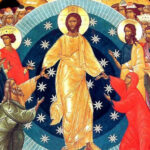
“He has changed sunset into sunrise, and through the cross brought death to life”
Clement of Alexandria (c. 150-215 AD) Hail, O light! For in us, buried in darkness, shut up in the shadow of death, light has shone forth from heaven, purer than the sun, sweeter than life here below. That light is eternal life; and whatever partakes of it lives. But night fears the light, and hiding itself in terror, gives place to the day of the Lord. Sleepless light is now ...
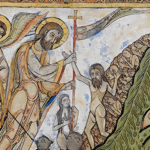
Origen on the end of the world (First Principles 3,6,1-9)
Tr. Frederick Crombie. From Ante-Nicene Fathers, Vol. 4. (1885) 1. Now, respecting the end of the world and the consummation of all things, we have stated in the preceding pages, to the best of our ability, so far as the authority of holy Scripture enabled us, what we deem sufficient for purposes of instruction; and we shall here only add a few admonitory remarks, since the order of investigation has ...

“Once saved, always saved” according to Origen
Greater than free will is love, because love is greater than all things. Love, says Origen, will keep every creature from falling away from God. In other words, not even the freedom of choice will be able to sever the bonds of love in the end. We are not saved against our will, but through the power of love ...

Origen on God’s “consuming fire”
The Platonic philosopher Celsus had argued against the supposed cruelty of the Christian idea of God as a "consuming fire" that tortures sinners. Origen, eager to defend the goodness of God, argued against Celsus that God only punishes in order to correct and save ...
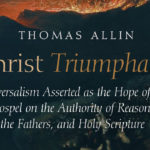
Thomas Allin: A Chain of Passages From Scripture Declaring God’s Purpose
These passages are, I repeat, not taken at random and piled up any way. They are the expression of that Purpose that runs though the Bible. It is a Purpose first stated in man's creation in God's image; a Purpose to be traced in the Law, the Psalms and Prophets; and most clearly in the New Testament ...

Hannah Whitall Smith: Three Censored Chapters of The Unselfishness of God And How I Discovered It
In her book, Smith explained how she came to embrace the belief in the final restitution of all things. However, the last three chapters (containing the whole point of the book!) have been censored by many Christian publishers ...

John Cassian on free will, grace and the salvation of all
"Sometimes He delays and hinders our injurious purposes and deadly attempts from having their horrible effects, and, while we are rushing headlong towards death, draws us back to salvation, and rescues us without our knowing it from the jaws of hell." ...
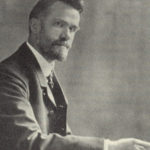
“There is bound to be a Christian invasion of hell” Walter Rauschenbusch on eschatology
The American theologian and Baptist pastor Walter Rauschenbusch (1861–1918) is most famous for his notion of the "social gospel". But while emphasizing the partial presence of the Kingdom of God in this life, Rauschenbusch did not ignore matters of soteriology and eschatology ...
Basil of Caesarea (probably) on Isaiah 9:5ff
"For all shall be subjected to Him and all shall recognise His mastery, and when God shall be all in all (1 Cor. 15:28), and those making an uproar by their apostasies are silenced, all in peaceful harmony shall praise God with hymns." ...
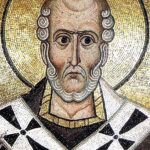
“A harmony of thanksgiving will arise from all creation” Gregory of Nyssa on the salvation of all creation
Excerpt from Gregory of Nyssa's Great Catechism (II,25-26): That Deity should be born in our nature, ought not reasonably to present any strangeness to the minds of those who do not take too narrow a view of things. For who, when he takes a survey of the universe, is so simple as not to believe that there is Deity in everything, penetrating it, embracing it, and seated in it? For ...
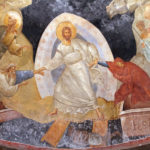
The Paschal homily of John Chrysostomos
Let none lament his poverty; for the universal Kingdom is revealed. Let none bewail his transgressions; for the light of forgiveness has risen from the tomb. Let none fear death; for death of the Saviour has set us free ...

Did God forsake Christ? Timothy Keller’s (supposedly) trinitarian heterodoxy and a Patristic alternative
Gregory of Nazianzen represents a viable alternative to the allegedly heterodox notion of the atonement represented by reformed theologians such as Keller. The Father did not forsake Christ, but Christ cried out on part of humanity on the cross ...

Pierre Cuppe: Heaven Open to All Men (1743)
Central to Cuppe's argument is the distinction between the "earthly man", Adam, and "the heavenly man", Christ. Both represent humanity in its entirety. Antichrist is nothing but humanity considered in its sinful state without God. Every human person, considered as the offspring of Adam can be called the "Antichrist", Cuppe explains. But considered in the light of the redeemer every human person is the new man, reconciled to God ...

Athanasius on the purpose of the incarnation: “This He did out of sheer love for us, so that in His death all might die, and the law of death thereby be abolished”
This He did out of sheer love for us, so that in His death all might die, and the law of death thereby be abolished because, having fulfilled in His body that for which it was appointed, it was thereafter voided of its power for men. This He did that He might turn again to incorruption men who had turned back to corruption, and make them alive through death by ...

In the heart of the earth: Jesus and the sign of Jonah
The intense struggle Christ underwent in the garden to enter this unknown state of existence farther from the Father than He had ever been, and to battle his own will and then overcome his human instinct for survival for our salvation gives us further insight into the wondrous depth of our Saviour’s love for us ...
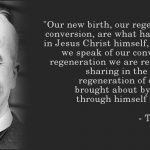
What does it mean to be “born again”? T.F. Torrance on regeneration with Christ
"During my first week of office as Moderator of the General Assembly of the Church of Scotland when I presided at the Assembly's Gaelic Service, a Highlander asked me when I had been born again. I still recall his face when I told him I had been born again when Jesus Christ was born of the Virgin Mary and rose again from the virgin tomb, the first-born of the dead." ...

John Milbank: “Christianity has to now embrace apocatastasis as the orthodoxy it has always been.”
Proponents of so-called Radical Orthodoxy has been quite explicit recently in their support for the classical, patristic idea of the restitution of all things. This is good news ...

“Hearing they may hear and not understand”. Sermon on the parable of the sower (Mark 4:2-12)
If we did understand anything, we would be capable of converting ourselves, and earn forgiveness. But this is exactly what we are not capable of. The good news is that God has mercy on us anyway – or perhaps rather, that this is exactly what makes it possible for God to have mercy on us. We cannot make ourselves a good soil, but God can ...
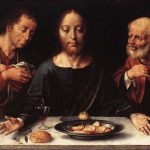
“As open as the outstretched arms of Christ on the cross” – Jürgen Moltmann on The Lord’s Supper
The Lord's supper takes place on the basis of an invitation which is as open as the outstretched arms of Christ on the cross. Because he died for the reconciliation of 'the world', the world is invited to reconciliation in the supper ...

Recovering the Primitive Baptist doctrine of ‘Justification From Eternity’ in a non-particularistic framework
The debate about the time of justification is far from just being a matter of speculation. It is relevant for practical theology, as it raises questions for mission and evangelism: Is preaching imperative for saving people or is it rather the joyful revelation of something which is already true about our existence? ...

James Relly: The Great Salvation Contemplated, epistle IV
"When I hear God himself promise a blessing to mankind, my mind immediately conceives of somewhat very different from a curse: but if men are not blessed with eternal life, it is easily proved, that all other blessings, so called, terminate in a curse. When I hear it promised, that this blessing should be in Christ, I readily conclude, that it is not in man: and can therefore conceive, how ...
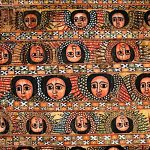
Every Eye Will See Him (Rev. 1:7)
What does it mean that every eye will see Him? God is now quickening His first fruit company of sons who see His coming and who are beholding the appearing of His life within. To behold or to see signifies a knowing and understanding. Rest assured that in the finality of God’s plan for the ages, every eye will be opened to understand and know Jesus Christ as Lord ...
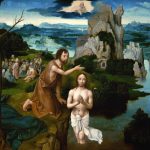
“Jesus rises from the waters; the world rises with him.”
Gregory of Nazianzen seems to grasp some of the significance of the baptism of Christ in his baptismal sermon, when he marvelously stated that in his baptism "Jesus rises from the waters; the world rises with him." The baptism of Christ is truly the baptism of us all in him ...

My eyes have seen your salvation!
The salvation of God is there whether we see it or not. But when we see it, seeing brings joy – if it doesn’t, it’s not the salvation of God that we see. The sight of God's salvation does not leave us unaltered. Seeing God’s salvation means taking part here and now in what Jesus is doing for the whole world ...

“Lord, do not hold this sin against them.” Sermon for Stephen’s day
In the midst of celebrating Christmas, we should keep in mind that not all Christians are lucky to live in peace and safety. By commemorating the martyrdom of Stephen we also commemorate those Christians who are persecuted today. But we are also thereby reminded, that God forgives even those who persecute his people ...
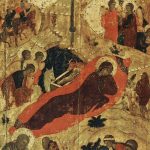
The Son of God was made man! Irenaeus on the coming of God in Christ
How shall man pass into God, unless God has passed into man? And how shall he escape from the generation subject to death, if not by means of a new generation, given in a wonderful and unexpected manner by God— that regeneration which flows from the virgin through faith? ...

G.K. Chesterton’s solemn warning against one-sided hope (and a few thoughts on some alternatives)
The Christian hope for all is always in spite of our very plausible, realistic and as such urgent pessimisms about the destiny of most people in the present. This is why the Christian hope for all is a call to action here and now rather than passivity ...
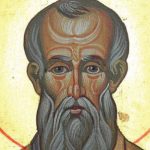
“Death has lost its power over all.” Athanasius on the union of Christ with humankind
For Athanasius, the divinity of Christ was crucial for the salvation of humanity. By receiving a human body, Christ, the eternal Word of God, bestowed the gift of his divinity upon our humanity, says Athanasius. "by virtue of the Word’s indwelling in a single human body, the corruption which goes with death has lost its power over all."" ...

James Relly: The Great Salvation Contemplated, epistle III
Hence, I propose, that the elect are not a people chosen to be the objects of God’s love and salvation, to the final exclusion of others: but a people chosen to believe the truth, and to rejoice in the salvation of Jesus in time; while others yet remain in a state of ignorance, of what they are equally entitled to with the elect ...

Gregory of Nyssa: A treatise on First Corinthians 15:28 (In Illud)
Gregory argues that the subjection spoken of by Paul is in both instances not a forced, but a free and joyful subjection, that leads to salvation of all who are subjected to God through Christ ...

James Relly: The Great Salvation Contemplated, epistle I+II
"There are but few individuals, so crucified to system, so detached from party, as to see and confess this truth much less can they perceive, how those doctrines, so seemingly contradictory, and opposite to each other, should yet be one in Christ, and preaching the same salvation, in the same language. Yet in this light I view them, and hope to speak intelligibly of the matter." ...

Jesus and the sign of the prophet Jonah
When Jesus talks about the sign of the prophet Jonah, it is not so much about us, but first of all about Jesus. The story of Jonah is a story about the cross and resurrection of Christ. It is Jesus who is to experience the uttermost darkness at the bottom of death, he who is about to go through a radical spiritual crisis in order to experience salvation ...

“He came to save all through means of Himself” Irenaeus on the humanity of Christ
For He came to save all through means of Himself — all, I say, who through Him are born again to God — infants, and children, and boys, and youths, and old men ...

Who are Jesus’ flock? Notes for a sermon on sheep
To belong to the flock of Christ - to be a part of his church - means to confess that he is one with the Father and that all and everything has been put into his hands. This also means to have a hope that is larger than a particular and narrow hope for the elect only. This larger hope is exactly what distinguishes the church from the pharisees of ...

Jacques Ellul on Jonah’s song: “God has been gracious from the very beginning”
Jonah, being a sign anticipating Christ's death and resurrection, is, according to Jacques Ellul, actually in hell (Sheol, " the realm of the dead"). But this is exactly where he experiences the grace of God, even if he has not yet seen deliverance ...

Karl Barth: “God has mercy on us.” Sermon from the Basel prison
The arms of his eternal love, if I may say so, are already outstretched when he makes us prisoners of disobedience. He does so in order to have mercy on all. Barth on Romans 11:32 ...

Bonhoeffer: “God goes to all people in their need”
God goes to all people in their need, fills body and soul with God’s own bread, goes for Christians and heathens to Calvary’s death and forgives them both ...

Athanasius on eternal election
Nor in any other way was it fitting that our life should be founded, but in the Lord who is before the ages, and through whom the ages were brought to be; that, since it was in Him, we too might be able to inherit that everlasting life ...
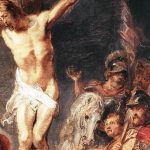
“The theology of the cross is the true Christian universalism” – Moltmann on the Gentile centurion and Jesus’ Easter appearances
There is no distinction here, and there cannot be any more distinctions. All are sinners without distinction, and all will be made righteous without any merit on their part by his grace which has come to pass in Christ Jesus (Rom. 3:24) ...
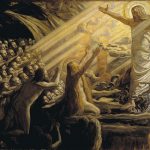
“Who is my opponent? I, he says, am the Christ.” Melito of Sardis On the Passover
"Who is my opponent? I, he says, am the Christ. I am the one who destroyed death, and triumphed over the enemy, and trampled Hades under foot, and bound the strong one, and carried off man to the heights of heaven, I, he says, am the Christ." ...

The woman with the alabaster jar
This is what the story of the woman with alabaster jar reminds us: That the kingdom of God explodes all our narrow concerns and ideas of justice. Instead we are to look to Jesus as the woman did. When we do that we are ready to help the poor, who are always with us in the kingdom. The justice of the kingdom of God does not exclude worldly justice, but ...
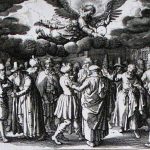
Why the gospel is not ‘universalism’, but good news for all
The gospel is simply the good news that Jesus Christ is the savior of the world, that he died for all, and that all has been and will be made righteous by his death. Theological ideologies, ’-isms’, are the attempts of human beings to impose limitations on the gospel, making it true only for some ...

What does it mean that Jesus fulfilled “all righteousness” when he was baptized?
What does it mean that Jesus fulfilled “all righteousness” when he was baptized? Jesus’ whole life, his ministry, beginning from his baptism by John in the Jordan until his suffering and death on the cross, is the “baptism” that fulfills all righteousness. Just as all died with him on the cross (2 Cor 5:15), all were baptized with him in Jordan ...

“Fear not! I bring you good news of great joy, that shall be to all the people.”
When Jesus comes to us, he comes to us in all our poverty. He was born on the edge of civilisation, in a manger. Jesus comes to us as one without possesions. Restless, like Cain. But unlike him Jesus accepts his situation. He comes to us as one who does not rely on wealth, but on God alone. And he tells his disciples to do the same ...

The king is coming! Notes for a sermon for Advent
This is the meaning of advent: That Jesus is coming – the Kingdom of God is coming. Not just somewhere far off in the future, but every day, in all circumstances of your life. He is coming right now, and with him he brings peace and light to everyone who lives in darkness ...

Charles Spurgeon’s Ambivalent View on Justification
If "it is God that justifieth," Rom. 8:33, and if the act of justification lies solely in God “estimating, accounting, and constituting” a sinner as righteous, then Spurgeon must be wrong in asserting that justification is a transient act, for these are all terms that denote an action of the divine mind, and consequently an action that is immanent and eternal ...

A “great kindness to Man”: Death as divine gift according to Patristic theologies
It's a common idea in Patristic theology that death is not just a punishment but also in a way a gift, as it puts a limit to sin, and makes it possible for God to recreate fallen creature through the resurrection ...

Hans Denck and yieldedness as the solution to the problem of the (un)free will
According to Denck, God lets human beings feel the consequences of sin, in order to teach us that we cannot rest on our own will. God is not the cause of sin, but he uses what is apparently evil, as a means of salvation ...

Karl Barth on the universality of the atonement and the particularity of the work of the Spirit
In the first volume of the fourth part of his Church Dogmatics Karl Barth argued that the atonement was true and real for all human beings as a result of the work of Jesus Christ. The difference between Christians and non-Christians, is that Christians are those who have heard the Gospel, and as a result know that the atonement is real for them also. This is the work of the ...
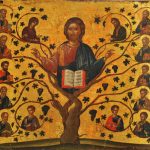
James Relly on the “Grace and truth of Union”
James Relly’s theology revolved around the idea of union. Everything which can be said about Christ can now be said of those who are united with him. Relly developed the core aspects of this idea in his Union: or, a Treatise of the Consanguinity and Affinity between Christ and his Church from 1759. Below are some excerpts from his book ...
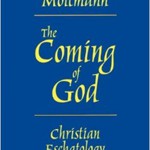
Jürgen Moltmann: The Coming of God
Jürgen Moltmann (1926-) is a German Reformed theologian and Professor Emeritus of Systematic Theology at the University of Tübingen. In his book The Coming of God Moltmann deals extensively with Christian eschatology. "True hope must be universal, because its healing future embraces every individual and the whole universe. If we were to surrender hope for as much as one single creature, for us God would not be God." - Jürgen ...

James Relly: “Has he fulfilled all righteousness? So have we. Is he justified? So are we.”
The central doctrine in Relly’s theology was the belief that the atonement and justification must be understood in terms of union with Christ. All human beings died with Christ on the cross. Faith is not a condition for justification, but only the knowledge that one has already been justified by Christ ...

Jacques Ellul: “A theology of grace implies universal salvation.”
Quoted from What I Believe (1989) by French theologian and professor of law, Jacques Ellul (1912-1994). I am taking up here a basic theme that I have dealt with elsewhere but which is so essential that I have no hesitation in repeating myself. It is the recognition that all people from the beginning of time are saved by God in Jesus Christ, that they have all been recipients of his ...

What’s the scriptural basis for calling all people “God’s people”?
By Jack Gillespie. "Well, of course, there aren’t any verses that come right out and say, “all people are now God’s people because of the work of Christ.” If there were, the conversation would be over. But I see it throughout the New Testament (and even suggested in the Old Testament) in the same way some people see Jesus “on every page of the Bible” or the way Paul saw ...
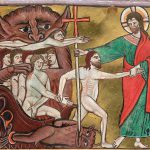
Thomas Whittemore: 100 Scriptural Proofs That Jesus Christ Will Save All Mankind
What a blessed assurance! Grace shall conquer sin? In every heart where sin has reigned, grace shall set up its empire. Grace shall reign triumphantly and successfully. We see not yet all this done; but it shall be done at last ...
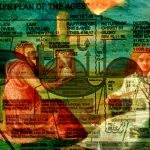
Marvin R. Vincent: Note on ‘eternal destruction’ (Olethron Aionion)
"They will be punished with eternal destruction (olethron aionion)" (2 Thes. 1:9). Aionios means enduring through or pertaining to a period of time. Both the noun and the adjective are applied to limited periods. Thus the phrase eis ton aiona, habitually rendered forever, is often used of duration which is limited in the very nature of the case ...

99 Verses of Cheer For Us All
Compiled by Peter Hinners. Luke 2:10-14 KJV I bring you good tidings of great joy, which shall be to all people. For unto you is born this day in the city of David a Savior, who is Christ the Lord... Glory to God in the highest, and on earth peace, good will toward men. 1 John 4:14 KJV And we have seen and do testify that the Father sent the ...

Elhanan Winchester: The Gospel Preached by the Apostles (1788)
"Both Calvinists and Arminians, are right--in many things: and, perhaps, both are under mistakes, in some things: and in nothing do they both mistake more, than in supposing, (as both of them do) that the doctrines of particular and general redemption, are contrary the one to the other" ...

Keith DeRose: Universalism and the Bible – The Really Good News
“Universalism is far from a mere doctrine of barren theology; many, like Paul, find great joy in the belief. [...] For myself, it’s hard to even imagine going back to my earlier way of thinking about God”--Keith DeRose ...

Exceptions to God’s love? A thought on violence and salvation, Anabaptists, Yoder, Barth and Luther
Note: This is a repost of a post from contrafatum.blogspot.com In the Lutheran Augsburg Confession (CA) the so-called Anabaptists were condemned not just for their baptist practices but also for their views on eschatology, soteriology and ethics. First there is the Anabaptist rejection of violence. The Lutherans condemned the Anabaptists for teaching the necessity of not engaging as soldiers in “just war”, to “sit as judges” and to award “just ...
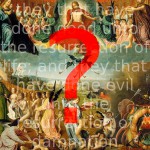
What is “the resurrection of life” and “the resurrection of damnation” (John 5:28-29)?
“[A]ll that are in the grave shall hear his voice, and shall come forth; they that have done good unto the resurrection of life; and they that have done evil unto the resurrection of damnation.”—John 5:28-29 ...

“It’s hell enough down here.” What do Primitive Baptist Universalists believe?
"Christ’s atonement was for all humankind and at Resurrection will irrevocably come to pass for all humankind; just as, irrevocably, Adam’s transgression earlier had condemned all to the sinful state of natural man." ...

Charles Slagle: The Good News of Christ’s Total Victory
"Christ bought us ALL back by His own blood shed at Calvary. He came to earth for this purpose: to destroy the devil's deceptive works and to save that which was lost. Eventually our Lord will fulfill His sure purpose and inherit ALL He paid for."--Charles Slagle ...

Thomas Allin: “Aion and Aionios”
On the words often translated "eternity" and "eternal" in the Bible. From Thomas Allin's Christ Triumphant ...
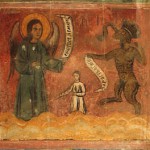
J. Preston Eby: Is Man a “free moral agent”?
"Oh, no, beloved, man is not a free moral agent. JESUS CHRIST IS THE ONLY MAN WHO IS A FREE MORAL AGENT. And He made the right choice, the one and only right decision. And HE MADE IT FOR US ALL!"--J. Preston Eby ...
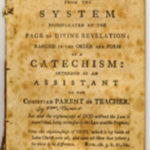
Judith Sargent Murray: Catechism (1782)
Judith Sargent Murray published this catechism in 1782. Her question-and-answer format neatly explains James Relly's Universalist theology. In her preface, Judith includes a clear statement about female equality ...

J. Preston Eby: "If Everyone is Going to be Saved, Why Preach?"
"The knowledge of God’s gracious purpose does not make true men of God careless. It makes them long to become a part of His will and an instrument in His plan of the ages." - J. Preston Eby ...

Gerry Beauchemin: Hope Beyond Hell
"We need to recognize that God integrates both mercy and judgment. This factor is a crucial piece of the puzzle helping us to better understand God‘s plan for all" - Gerry Beauchemin ...
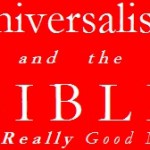
Keith DeRose: Universalism and the Bible – The Really Good News
"So, show me someone who's under divine punishment forever, or who is simply annihilated, and I'll show you someone who's never reconciled to God through Christ, and thus someone who gives the lie to this passage." - Keith DeRose on Col. 1:19-20 ...

William Barclay: Reasons for believing in universal salvation
"I am a convinced universalist. I believe that in the end all men will be gathered into the love of God." - William Barclay ...

J. Preston Eby: The Two Hands of God
"He will use the surgeon's knife when He sees a tumor of self-will or a deadly virus of carnality sapping our spiritual lives, or when He sees the cancerous growth of sin. He does not hesitate to deal with us severely. We must learn this fact early: He loves us just as much when He is subjecting us to surgery, as when He sends us blessings and gifts and brings ...

Elhanan Winchester: The Outcasts Comforted – Sermon on Universal Restoration (1782)
"One will say, God loves all his creatures without exception, that he is good to all and his tender mercies are over all his works. Another will maintain that all the objects of his love must finally come to the enjoyment of himself; and that his mercy endureth forever and cannot fail. We heartily believe both these testimonies. One will assert that Christ died for all, tasted death for everyone; ...

The Schizophrenic Gospel? Christian and Anti-Christian Paradoxes
In the schizophrenic gospel, God is both darkness and light. In the Christian gospel, there is no darkness in God (1 John 1:5), but God's light reveals, contradicts and convicts our darkness. The so-called double-bind theory was developed by Gregory Bateson in the 1950s as an explanation for schizophrenia. It explains how a certain kind of communication leads to a breakdown of personality, rendering the subject completely dependent upon the ...

Libertinism vs. Christianity?
What if the truth is, that if God is dead, then there is no freedom, no liberty, and then nothing is allowed? What if God’s apparent death means, that we are at the mercy of the forces of nature, sociology, capitalism, the state, technology, violence, you name it? ...
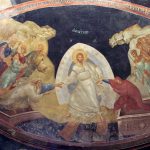
In our darkness
For God darkness is as light. Through his own dying Christ has overpowered our enemy, death, and turned darkness into light. This is why he can now take each and every one of your darkest sorrows and worries, and turn them into blinding lights ...

Julie Ferwerda: Raising Hell – Christianity’s most controversial doctrine put under fire!
"Through a very intentional plan that reaches into future ages, I believe the true Gospel is that all people for all time will be willingly and joyfully drawn by the unconditional, irresistible, compelling love of a Father into a relationship with Him through His Son."--Julie Ferwerda ...

Loyal F. Hurley: The Outcome of Infinite Grace
In this classic Seventh Day Baptist pastor Loyal Hurley explained his views on salvation and eschatology. The book is an easily read, precise exposition of Biblical doctrines on salvation and grace ...
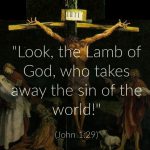
More thoughts behind the website: Doing theology in the light of the gospel of infinite grace
The purpose of this website is not to teach soteriological universalism as a ‘theological doctrine’, but to help deconstruct and reconstruct traditional concepts such as salvation, damnation, election, predestination, divine judgment and so on. God is free to have or not to have mercy on whom he wills (Rom. 9:18), and so we cannot make a sure 'theory' about grace. But this is also exactly why we are free to ...
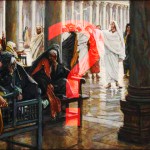
The blasphemy against the Holy Ghost (Matt. 12:31-32; Mark 3:28-30; Luke 12:10)
What is "the blasphemy against the Holy Ghost"? (Matt. 12:31-32; Mark 3:28-30; Luke 12:10) ...
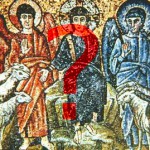
The sheep and the goats (Matt. 25:31-46)
From J.W. Hanson’s Bible Threatenings Explained. Matt. 25:46 is the great proof text of the doctrine of endless punishment: “These shall go away into everlasting punishment, and the righteous into life eternal.” That the popular view of this language is incorrect is evident, because those punished are those who have not been good to the poor. Only such are to suffer everlasting punishment. Endless life is the reward, and endless ...

Hell (Gehenna) in the Bible
From J.W. Hanson’s Bible Threatenings Explained. “And fear not them which kill the body, but are not able to kill the soul: but rather fear him which is able to destroy both soul and body in Hell (Gehenna).” (Matt. 10:28) “But I will forewarn you whom you shall fear: Fear him which, after he hath killed, hath power to cast into Hell (Gehenna); yea, I say unto you, fear him.” ...
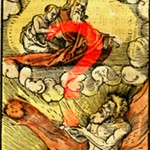
The rich man and Lazarus (Luke 14:22-23)
How should we understand the parable of Lazarus and the rich man? (Luke 14:22-23) ...

Adam's punishment
From J.W. Hanson’s Bible Threatenings Explained. “And the Lord God commanded the man, saying: Of every tree of the garden thou mayest freely eat; but of the tree of the knowledge of good and evil, thou shalt not eat of it; for in the day that thou eatest thereof thou shalt surely die.” (Gen. 2:16-17) The penalty that God intended to threaten to Adam would certainly be found at the ...

The second death (Rev. 21:8; Rev. 20:12-14)
What is "the second death" (Rev 21:8; Rev 20:12-14)? ...
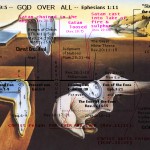
Joseph E. Kirk: The eons of the Bible
"God’s purpose in creating man, and God’s purpose of the eons are inseparably related. Many are unfamiliar with this important subject because the facts have been concealed by incorrect and misleading translations of the Bible from the original languages into English."–Joseph E. Kirk ...